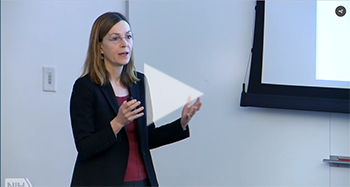NIGMS has a longstanding commitment to train the next generation of biomedical scientists and support the training of students from diverse backgrounds, including groups underrepresented in biomedical research, through fellowships, career development grants, and institutional training and student development programs. These programs, and other efforts, have contributed to a substantial increase in the talent pool of well-trained biomedical Ph.D.s from historically underrepresented racial and ethnic groups. However, increasing evidence shows that transitions of these talented scientists from postdoctoral training into independent faculty positions at research-intensive institutions is a key point at which they exit the NIH-funded research workforce. Similarly, women have earned a majority of biomedical Ph.D.s since 2008 but approximately one-third of NIH-funded principal investigators are women.
We have undertaken a number of efforts to facilitate the career transitions of postdoctoral scientists from diverse groups into the professoriate including Institutional Research and Academic Career Development Awards and research supplements to promote diversity in health-related research and re-entry into biomedical research careers. Additionally, we administer the NIH Common Fund’s National Research Mentoring Network, a nationwide consortium of biomedical professionals and institutions collaborating to provide biomedical trainees from all backgrounds and at all levels with evidence-based mentorship and professional development programs. While these efforts have supported the development of highly-trained biomedical scientists who have the necessary knowledge and skills to pursue independent biomedical research careers, we need additional strategies to promote transitions to independent faculty positions at research-intensive institutions.
Continue reading “Give Input on Strategies to Enhance Postdoctoral Career Transitions to Promote Faculty Diversity”


